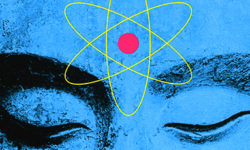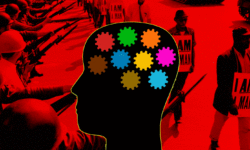Frankenstein: Evil, Morality & Phronesis

Mary Shelley’s novel Frankenstein is a ubiquitous feature of popular culture, continuously adapted and revisited. Dr. Raymond Boisvert, Professor of Philosophy Emeritus, argues that Frankenstein endures because of its sophisticated treatment of morality. Victor, a brilliant thinker who sees science as a means of transcending natural limits, creates life (Frankenstein’s “monster”) only to demean and abandon his creation. But Boisvert argues that Victor is a complex figure — neither inherently evil, nor the product of a corrupt or evil society. Instead Victor’s failings can better be understood by examining two different ethical models: Evil as Absence & Evil as Banal.







